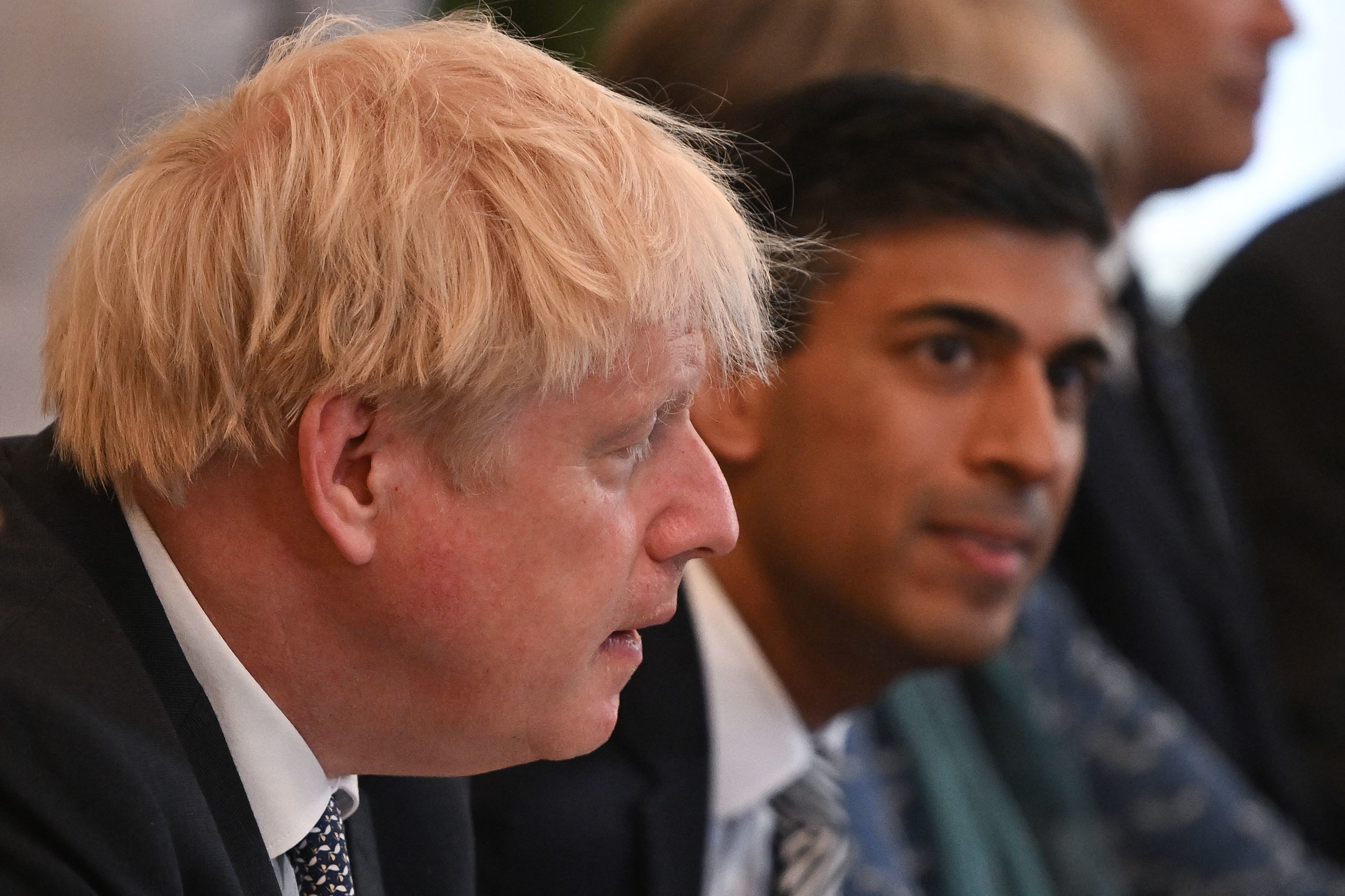The chain resignations of the Secretary of the Treasury, Rishi Sunak, and the Secretary of Health, Sajid Javid, have put the ‘premier’ Boris Johnson in a limit situation. The two ministers decided to present his resignation in the space of ten minutes due to Johnson’s lukewarm reaction to the sexual scandal involving his former number two in the parliamentary group, Chris Pincher.
In his brief resignation message, Sunak personally criticized Johnson, arguing that a government must function “in a proper, competent and serious manner.” Javid said at his farewell that the UK needs “a strong and principled Conservative Party”.
The two appear in the pools for the “succession” of Johnson.
Both have published their resignation letter through Twitter and consider that the prime minister does not meet the required standards of conduct and competence. To which Javid has added that he “has lost confidence” in his leader.
The resignations occurred minutes after the ‘premier’ was forced to publicly apologize for having designated Pincher as ‘number two’ and having turned a deaf ear to warnings about his sexual conduct since 2019 (his suspension as a deputy occurred on Saturday after the episode in which he attempted sexual groping with two men at the Carlton Club in London).
Johnson’s silence and evasiveness regarding the ‘Pincher case’ reactivated in record time the animosity of the Conservative Party against its leader. What few expected was a cascade of resignations at the highest level, after the closing of the ranks of his government during the ‘Partygate’ and after the motion of censure backed by 41% of its deputies.
Javid, a personal friend of Carrie Johnson, was the first to stand out and present his resignation letter. “The tone that you have set as a leader and the values that you represent are reflected in your colleagues, your party and ultimately your country,” Javid warned. “We have not always been popular, but we have been competent in the national interest. Sadly, in the present circumstances, people have concluded that we are neither one thing nor the other. Last month’s confidence vote shows that a good number of our colleagues think the same.
“I am sad to leave the Government, but I have come to the conclusion that we cannot continue like this,” Sunak wrote for his part at the time of leaving the Treasury secretary. “Resigning my position in a world that is suffering the economic consequences of the pandemic, the war in Ukraine and other difficult challenges, has not been something that I have decided lightly.”
“I am instinctively a team player, but the British expect integrity from the government,” added Rishi Sunak, who this week was preparing the announcement of a tax cut. “It is with great regret that I must say that I cannot continue to serve this Government with a clear conscience.”
Both Sunak and Javid had apparently been the two most critical ministers for the impact that the scandals have had on the assessment of the Government and the fiasco of the Conservative Party in the two special elections in June, in which they gave up a seat to the Labor Party on the “red wall” of the industrial north and another to the Liberal Democrat Party in rural southern England.
Sunak’s resignation was compared to the 1989 resignation of Nigel Lawson as Margaret Thatcher’s Treasury Secretary, considered the key moment in her downfall (consummated, however, a year later). Johnson tried to contain the government crisis throughout Tuesday afternoon and apparently secured the support of his ‘second’ and head of Justice, Interior Secretary Priti Patel and Defense Secretary Ben Wallace (who appears as a favorite in the succession race among conservative voters).
All eyes were also on the movements of Foreign Secretary Liz Truss (who is also flying high in the polls) and Secretary of State for Trade Policy Penny Mordaunt, one of the voices most critical of Partygate within the Government.
Conforms to The Trust Project criteria
















